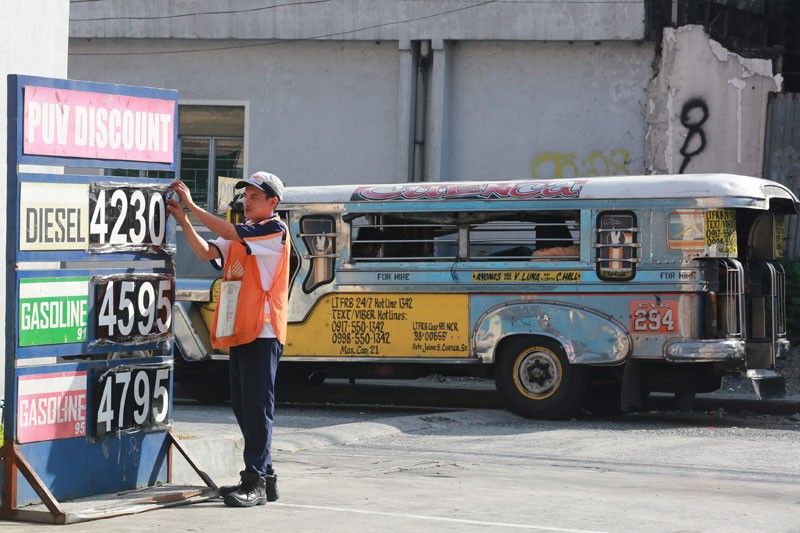Inflation seen to revert back to 2-4% target in 2019

MANILA, Philippines — The Bangko Sentral ng Pilipinas (BSP) sees inflation easing back to the two-to-four percent target next year after a slew of policy initiatives undertaken by the government.
BSP Deputy Governor Diwa Guinigundo told participants of the Philippine Economic Briefing (PEB) held in San Fernando, La Union and Clark, Pampanga that inflation is expected to revert to within target range in 2019.
Inflation remained steady at a near-decade high of 6.7 percent last month, bringing the average to 5.1 percent in the first 10 months of the year, and exceeding the BSP’s two-to-four percent target between 2018 and 2020.
“Following a slew of policy initiatives, including monetary policy actions by the BSP, inflation is expected to revert to within-target range next year,” Guinigundo said.
Based on its latest assessment, the BSP’s Monetary Board sees inflation averaging 5.3 percent instead 5.2 percent this year after factoring in fare and wage hikes, before easing to 3.5 percent instead of 4.3 percent next year due to non-monetary measures such as the passage of the rice tarriffication bill.
“The BSP will continue to complement government efforts toward sustainable, robust, and more inclusive economic growth by staying committed to our price and financial stability mandates,” Guinigundo said.
The central bank has raised interest rates by 175 basis points in five straight rate-setting meetings since May this year to curb rising inflationary measures due to higher oil and food prices, the weak peso, and the impact of Republic Act 10963 or the Tax Reform for Acceleration and Inclusion (TRAIN) Law.
According to the BSP official, the country’s macroeconomic fundamentals remain strong.
The country’s gross domestic product (GDP) growth eased to its slowest level in three years at six percent in the third quarter from 6.2 percent in the second quarter, and 6.6 percent in the first quarter.
The GDP expansion averaged 6.3 percent in the first three quarters, slightly lower than the lower end of the revised 6.5-to 6.9-percent target set by the Development Budget Coordination Committee (DBCC).
“The Philippines has been an outperformer in recent years. It is one of the fastest growing and most resilient economies in the region and the world. This trend is expected to continue on the back of strong macroeconomic fundamentals,” Guinigundo said.
The PEB is a flagship activity of the Investor Relations Office (IRO) wherein top economic and infrastructure officials present updates on the economic performance, outlook, and policies, as well as the government’s massive and much needed infrastructure thrust.
Evie Medina-Navarro, director at the BSP’s IRO, said the PEB serves as beginning platforms for greater cooperation and coordination among agencies of government and the public.
- Latest
- Trending





























